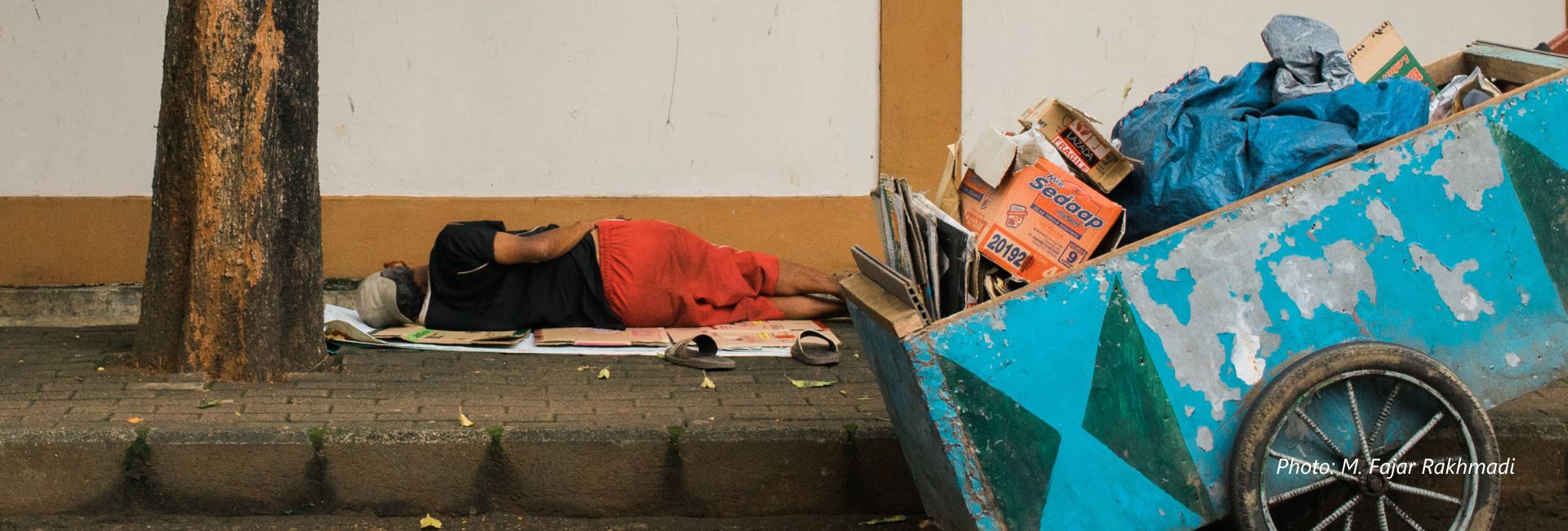This research report focuses on the everyday life of manusia gerobak in Jatinegara. This subject matter arose due to the fact that the ways poverty was interpreted, mainly its causes, were dominated by two theoretical approaches, they being the culture of poverty and structural poverty. Both approaches greatly influence the government’s view, as well as various other elements of society, in their efforts to reduce poverty in Indonesia. Both approaches work under the structural paradigm of functionalism which places the poor as objects portraying them as static, lazy, and helpless people. Therefore, they are considered to have distinctive cultural boundaries that are different from those of people who are not poor. This poses the question: what is the position of the poor, such as manusia gerobak, as social actors who are both active and creative? Through this study, the researcher shows that manusia gerobak, as part of the poor, are active subjects and have developed tactics that are both creative and manipulative in order to survive. The characteristics of these active subjects is shown in their creation of explanations, their sets of knowledge as a basis for their daily practices, their exploitation of social networks, and their appearance (style) as vagrants. Based on these findings, the theoretical assumptions of the culture of poverty and the structural poverty approaches, which gives the poor a distinct culture, turns out to be difficult to prove as manusia gerobak have associations with a broad range of actors.



